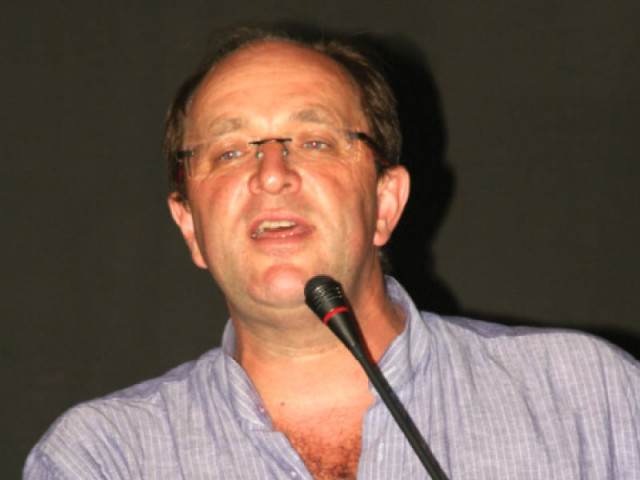Of Mughals and Afghans ‘It was born in Lahore’
Dalrymple speaks about researching his last novel, his writing rituals, his ‘favourite’ book.

Dalrymple says the book he got most attached to was The White Mughals. PHOTO: ABID NAWAZ/EXPRESS
“It was born in Lahore, actually”, says Scottish historian and writer William Dalrymple of his newest and commercially successful book to date, when asked where and how he conceived the idea.
Return of a king has sold 95,000 copies within the first three weeks of being published. Dalrymple speaks of it very fondly; almost as one would of the most recent addition to one’s family. He remembers clearly when the idea came to him.
“It was while I was here on the Nine Lives tour in 2010 that I went and looked in the Anarkali archives to see if there was something from the Ludhiana regency and I found what I was looking for: the Spy master’s documents.
I [had] always had it at the back of my mind that there could be a possibility of a story in this, particularly as the story in Afghanistan was getting closer and closer to resembling this earlier expedition. But it was finding those archives that made me make the move. I remember coming back from there and thinking that this was going to work, that this had got wings on it. It was suddenly terribly relevant because of the current occupation”
In the past three years, he has sifted through centuries old archives to create an eloquent and authentic account of one of the most disastrous British military campaigns in history.

Even though by his own admission on the first page of his new book, “there may be easier places to research a history book than Afghanistan and Pakistan”.
The amount of work that goes into organising such a significant historical narrative is no mean feat. Yet Dalrymple modestly downplays it. “I find history books easier to write than travel books”, he says, and then quickly adds, “Writing is a very tough job though, I don’t particularly like writing. But it is a necessary pain.” He explains that holding a printed book in his hands, smelling the newly printed pages and hearing a good review is what he looks forward to, but before one gets to that part, he explains, one has to actually create a narrative.
“That takes an enormous amount of work. … I am only half there for my family. Sometimes I get up in the middle of a dinner and walk off when a sentence comes to me. It is not always easy”.
“I love writing”, he says simply, “even if it is one of the hardest things I have ever done in my life. I obsess about my books when I am writing. I dream of the book I am working on, the characters are actually alive for me”.
He said he had a specific ritual of writing. “I am very, very disciplined when I am writing. I am enormously lazy and chaotic in lots of other aspects of my life but once I begin writing it is like exams. I get up very early. The last thing I do at night is print out the day’s work, have it by my bed so that when I wake up I take it straight outside, read it through and correct it. I have the corrections in the computer by breakfast. I am very happy if I have written around 2,000 words by the afternoon.” He admits however: “I hardly ever keep the deadlines my publishers set for me, I am terrible that way”.
Dalrymple says the book he got most attached to was The White Mughals. He discovered that he was linked to the Mughals while researching for the book. His wife’s family tree can be traced back to Queen Nur Jehan.
When asked if any areas of Scottish history tempt him enough to write about them, he speaks roguishly of his ‘evil Scottish ancestor’ who may eventually lure him to it.
“My family was involved in a very disreputable episode of Scottish history, called the massacre of Glen Coe. The Campbells were sent to massacre the MacDonalds at the behest of my ancestors. I have always wanted to write about that”.
Published in The Express Tribune, February 28th, 2013.



















COMMENTS
Comments are moderated and generally will be posted if they are on-topic and not abusive.
For more information, please see our Comments FAQ